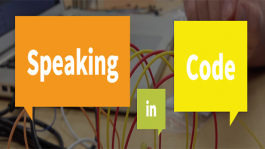 Joining any new community involves a certain amount of transition time. This is especially true when you encounter those communities that are prone to speaking in codes or acronyms, in which case the it can be a little like learning a ‘new language’.
Joining any new community involves a certain amount of transition time. This is especially true when you encounter those communities that are prone to speaking in codes or acronyms, in which case the it can be a little like learning a ‘new language’.
Amongst the Military and First Responder/Dispatcher communities, these acronyms and codes are often universal; however, there can be some variances in the 10-code between various police departments. This is equally true in the Military where the same acronyms can mean different things to different Branches. Even within the same Branch/Service, there are often instances in which the same acronym can have a completely different meaning based upon the nature of the job or the community of interest you are dealing with.
There is certain degree of comfort derived from this common mode of communication, one that can cause some degree of anxiety or frustration when dealing with those who do not understand. In this regard am reminded of the time when I was overseas and my wife was back in an area where there was little military presence. It got to the point where she went into the local Marine Corps recruiting office and said, “Quick, somebody talk to me in acronyms!”
This is also true when it comes to the area of Recovery. For those new to the Recovery arena, it can be like having to learn yet another language when you finally step out to attend that first meeting. This unfamiliarity with the words being used can sometimes inject additional angst into an already stressful situation. Yet, we tend to become more comfortable as we become more familiar with the ‘language’ spoken by any group we join, and it is this comfort level that encourages us to relax and share our hurts, needs, and struggles.
However, we must bear in mind that as we become more fluent in this new language, there are others who may become increasingly frustrated; our family, friends, and other loves ones. If we do not include these people in our recovery, we are not using some of the most important resources available to us, and one key to this is ensuring they know and understand “Recovery Speak”. Unless they are familiar with all the new terminology we come home with, those closest to us will not only have a hard time understanding our struggles or progress, they may draw false conclusions concerning the status of our faith. This can be especially true when dealing with some of the more common and more secular recovery groups. Although we may understand what we are meaning, using phrases such as “Higher Power” rather than referring directly to God, Jesus, or Christ have caused those unfamiliar with these groups to question one’s faith, particularly when they are unaware of some of the restrictions placed on what can and cannot be said at some of these meetings. Hopefully, this confusion can quickly and easily be overcome and those around you will seek out an understanding of what you are saying, much like Paul’s encounter with the Stoic and Epicurean philosophers in Athens, “…And some said, ‘What does this babbler want to say?’ Others said, ‘He seems to be a proclaimer of foreign gods’… for you are bringing some strange things to our ears. Therefore, we want to know what these things mean.” (Acts 17:18-20 NKJV)
No matter if the ‘language’ you are speaking is from work or from recovery, it is to our advantage to ensure those around us can understand what we are saying. However, there is one language that is universally understood, and that is the language of Love. But what does this language sound, feel, and/or look like? I will address this in my next post but, for now, know that Love, in its purest sense, looks like God because, “… God is Love.” (1 John 4:8)
Taking Every Thought Captive!
Scott Pipenhagen
Recovery / Transition Chaplain
Serve & Protect & Guns’n’Hoses
2 Corinthians 1:3-4